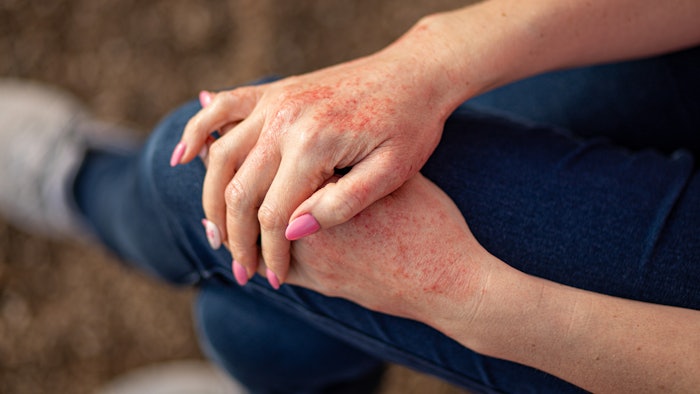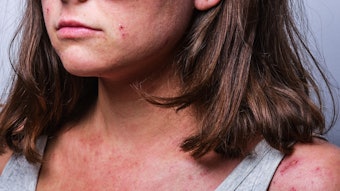
A September 2023 study in the Journal of the American Academy of Dermatology revealed that children diagnosed with atopic dermatitis may also need to be tested for a second type of eczema called allergic contact dermatitis, which has similar symptoms and can be triggered by a range of substances that cause an allergic reaction. The study reflects the significance of consulting a board-certified dermatologist when struggling with eczema, as there could be underlying causes like an allergic reaction.
Related: Amytrx Publishes Abstract Supporting AMTX-1000 to Treat Mild to Moderate Atopic Dermatitis
"When a dermatologist sees a child who looks like they have eczema, we usually think that it's atopic dermatitis because nearly one in five children develop it," said board-certified dermatologist JiaDe (Jeff) Yu, M.D., MS, FAAD, assistant professor of adult and pediatric dermatology at Massachusetts General Hospital and senior author of the study. "Sometimes these kids could have allergic contact dermatitis, but the only way to tell is through patch testing, which is designed to identify substances that may be irritating your skin."
While there are a multitude of options that can be used to treat allergic contact dermatitis, identifying and avoiding substances that are causing the allergic reactions is most effective in helping improve a patient's condition and clear their skin, per the report.
The study suggests that it's important to choose fragrance-free products because fragrances can contribute to flare-ups. People with eczema should test new skin care products first by applying them to a quarter-sized patch of skin on the inside of the arm every day for four weeks. If there is no reaction, the patient will likely be able to use the product.
"Patients can have atopic dermatitis and allergic contact dermatitis at the same time, and it all looks like the same thing," Dr. Yu said. "I imagine it like layers of a cake. Maybe the first layer is atopic dermatitis, and then the second layer is allergic contact dermatitis. In these cases, the overall eczema may look very severe but once you remove the allergic component, the eczema seems much more manageable. A board-certified dermatologist can provide you with an accurate diagnosis by performing a patch test to determine whether you have allergic contact dermatitis and determine how to appropriately treat it."











